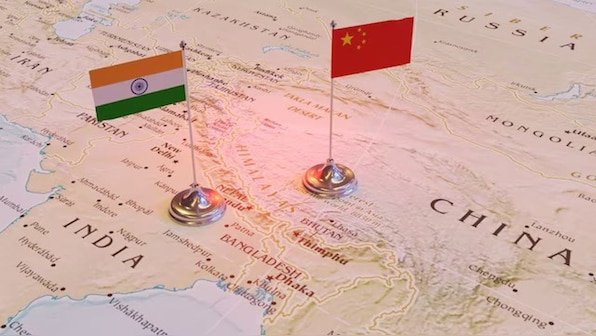
The Global South has become more than just a buzz word in global geopolitics over the last few years. Serious world leaders have made references to the Global South at various instances indicating its rising importance. As its significance continues to grow, the race to lead this group is bound to intensify with India and China as the primary candidates for the top job.
It is pertinent to understand that the concept of the Global South is not new — in 1955, at the Asia-Africa conference in Indonesia, such a gathering first took place. While at the time the shared issues remained mainly dealing with the aftereffects of colonialism and racial discrimination, the issues have now matured into dealing with the new multipolar world order without being bracketed forcefully on one side. The Global South has a shared grief of being colonised for centuries by the Western powers, unwanted foreign interference in national politics as well as poverty — as a consequence of their wealth being looted by respective colonisers.
As these young countries are maturing, they seem to be gaining a strong, influential voice which is consequential in shaping outcomes of geopolitical challenges that the world faces today. As they begin to emerge out of poverty, and continue on the path of development, these countries offer open, largely untapped markets for businesses as consumption for global goods continues to rise. However, they do continue the need to have a unified voice and a leader who is able to echo their collective perspective on global platforms to powerful leaders. This is where India and China come in. Both countries appear to be competing for this role. However, over the years, only India is likely to stand the test of time and likely to succeed, if it plays its cards right. Below, I explain how.
First, the Global South geographically represents the group of countries, most of which are either emerging economies or under-developed, which lie south of the Tropic of Cancer, which roughly divides the habitable world into two parts. Just by its sheer geography, China does not qualify as a country of the Global South. India on the other hand falls on this line and also exercises dominance on the vast Indian ocean through which runs the Equator, which divides the Earth into two equal halves. Another historical fact is that China was never outrightly colonised; and it only ceded some territories to various Western forces in the nineteenth century. This makes China’s journey unrelatable to the shared journey of emerging from the long-term impact of colonialism which much of the Global South experiences. India, on the other hand, has lived through centuries of being colonised and has now made its place in the top five economies of the world — a success story most colonized countries aim to emulate.
Content retrieved from: https://www.firstpost.com/opinion/why-india-is-better-placed-to-lead-the-global-south-than-china-13847416.html.




